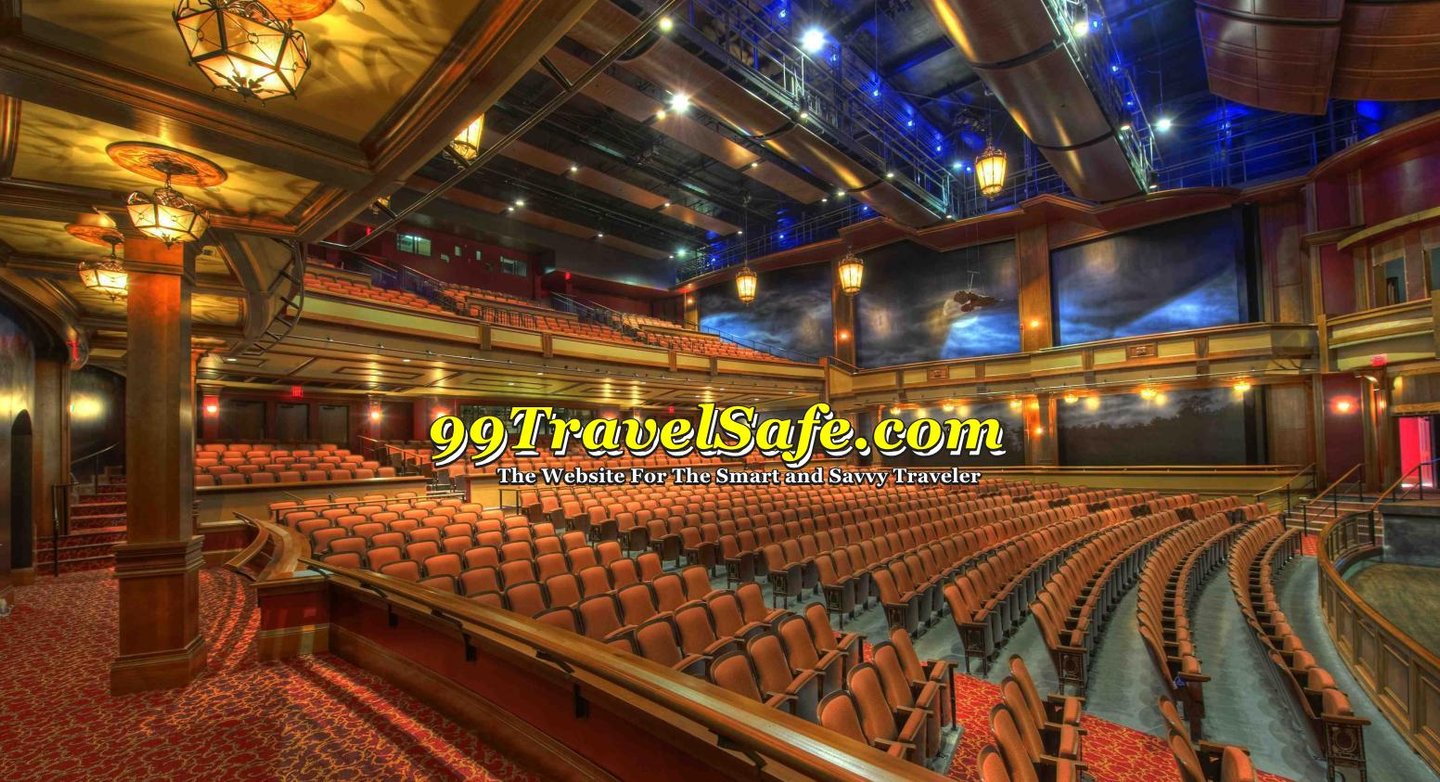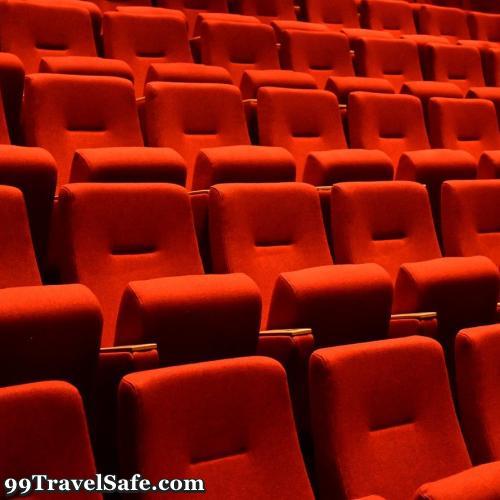

99TravelSafe.com
The Website For The Smart and Savvy Traveler
Safety While Visiting Movie Theatres and Live Theatres!


Related Pages - Please Also See;
91 – Being Safe in Amusement and Theme Parks
Safety in Movie Theatres
Sit At The Back
Sit in the back row, preferably on one side or the other. This not only gives you a clear view of everything — and everyone — in the theater, but it also gives you easy access to the door. While you don’t want to sink to paranoia, it’s good to be prepared in case something does happen
Be Aware of Your Surroundings
No need to examine everyone up close and personal, but being aware of the possibilities is not a bad thing. I kept my eye on backpack boy, but still managed to enjoy the movie at the same time
Be With Friends
Use the buddy system. Because of the volume of films I see for my job, I almost always go alone. The movie theater is essentially my office away from home. But for the casual moviegoer, you’ll probably go with a friend or two. That’s a good thing, because more eyes mean more awareness of the room and people. It’s also more fun to see a movie with a friend
See The Early Show
See movies early in the day. There’s no telling when a psychotic person might open fire in a crowded area, but safe to say it’s more likely to happen at a midnight screening than an afternoon matinee. Also, being out and about in the daylight might make you feel better and relieve some anxiety
Keep The Cell Phone Close
Keep your cell phone handy. It’s polite to stay off your cell phone during a movie. No one likes seeing that flash of blue screen in a dark theater. But keep your phone on and handy, in case you need to make an emergency call. Just keep the volume down so an incoming call won’t disrupt moviegoers
Park Your Car in a Well-Lit Space
Park your car in a well-lit space near the theater door. Whether it’s afternoon or evening, the less time you spend in a parking lot getting to your car, the better. Don’t park in deserted areas where you have to pass alleys, trees, and bushes that create hiding places for someone wanting to do you harm. Avoid parking garages, especially those with poor lighting. Another tip I learned in college: keep your car keys in your hand, with the keys nestled between your fingers and pointing out. If you need to punch someone, they’ll get a knuckle full of sharp keys in their face
Avoid Valuable Items
Use common sense. Whether you’re in a theater or a public space, there’s no need to give a criminal extra incentive. Don’t wear expensive jewelry. Use a purse with a cross-body strap. Avoid ATM machines at night. And skip the headphones while out and about
Establish An Escape Route in Your Mind
Establish an escape route. I’ve already covered sitting next to the theater door, but if someone approaches you in the parking lot, either walking or driving, keep a good distance between yourself and them
Keep Your Distance....
Increase your distance from the shooter. If, God forbid, you find yourself in a situation with a gunman, get as far away from him or her as you can. If that’s not possible, get under a seat and don’t let them see you. “He’s looking for targets, and he can do a lot of damage in a few seconds,” says Ned Timmons, a security expert and former FBI agent. He adds that if you’re in a situation where you can put a locked door between you and the shooter, all the better. If you can’t run away, hide, or get behind a locked door, divert their attention. “If it’s your last resort and you’re in fear for your life, throw something at them or even attack them,” says Timmons. While I’m not sure I could bring myself to attack a person threatening me with a gun, knife or other weapon, I like the idea of distracting them enough to possibly run away
Safety Visiting Live Theatres
To ensure a safe and enjoyable live theatre experience for both audiences and those involved in the production, several safety measures should be taken. This includes clear exits, flame-retardant materials, proper use of stage lighting and rigging, and safe handling of props and equipment
For Audiences
Know Your Surroundings
Familiarize yourself with the layout of the theatre, including exit routes and fire alarms
Pay Attention to Warnings
Be aware of any specific warnings or instructions provided by the theatre staff regarding lighting effects or other potential hazards
Maintain Good Hygiene
Wash your hands regularly and avoid sharing personal items like makeup
Be Mindful of Surroundings
Avoid distractions during the performance, such as phone use, and be respectful of others
For Production Staff and Actors
Clear Exits
Ensure all exits are clear and unobstructed
Fire Safety
Use flame-retardant materials for sets and curtains
Stage Lighting
Stage lighting should be regularly inspected and maintained by qualified personnel
Rigging
Ensure rigging systems are well-maintained and inspected regularly, especially those with manual counterweight systems or motorized rigging
Props and Equipment
All props and equipment should be safely secured and handled
Fall Protection
Invest in fall protection measures, especially for work at elevated heights, and have a safety plan in place for emergencies
Safety Hazards
Identify and address potential hazards such as slip hazards, trip hazards, and hazardous materials
First Aid
Ensure that first aid supplies and trained personnel are readily available
Communications
Maintain clear communication between the director, cast, crew, and volunteers regarding safety protocols
Training
Provide regular safety training for all production staff and actors, particularly in areas like fire safety, first aid, and technical equipment
By implementing these safety measures, live theatre productions can be made safer for everyone involved, allowing audiences to enjoy the performance without worrying about safety concerns
